Read the word.
Teach the word.
Preach the word.
- 1 Timothy 4:13
|
Rules and regulations lack any value and strength in restraining sensual indulgence. In order to overcome those temptations, we need a strong heart—a heart strengthened by grace, a heart established by grace.
But what does this look like? What does it mean to strengthen someone by grace? What does it look like to have a heart established by grace? It’s often found in emphasizing what God has done for us—not in what we should be doing for God. When we focus on what we don’t have or can’t do, sin easily entangles us. But when we focus on all we have, especially all the riches we have in Jesus that can never be taken away, the unmerited favor of God teaches us to say no to sin. What Jesus offers us far outweighs and outlasts the fleeting pleasures of sin. And since His mercies are new every morning (Lamentations 3:23), we will never reach the end of the riches of His grace. Hebrews 13:9 has been used by the Lord to form much of our ministry here in Central Minnesota. When the fellowship was first planted in St. Cloud, a good friend of the ministry called it “the great grace experiment.” After 17 years of unpacking and unfolding the depth of the riches of that verse, the experiment continues—and it’s a joy and a blessing to continue this great grace experiment together with you! How firm a foundation, you saints of the Lord, is laid for your faith in his excellent Word! What more can he say than to you he has said, to you who for refuge to Jesus have fled?
The final chapters of the books in the New Testament are interesting to study—since they are so rarely read. Many of these books were originally letters written to a specific person or group of people. We naturally start reading letters at the beginning—but even with the best of intentions, the end of the letters are not as often read as the beginning.
Like any letter, many of these final remarks are personal in nature. Some may seem unrelated or disjointed from one another, like a rapid-fire list of parting thoughts. It’s almost as if the writer has finished the majority of his persuasive argument and ends the letter with a list of practical ways to live out the faith. We see this in Hebrews 13—and while these final remarks might seem disconnected at first read, they actually weave a rich and significant conclusion to this important letter to the Hebrews. Watch or listen to our final study of Hebrews and be encouraged by the great grace of our amazing God! God is a consuming fire. He longs for us to offer ourselves completely as a living sacrifice.
Consumed by Him. Refined by Him. Trained by Him. Discipled by Him. This happens as we trust and obey Him and believe that He is able to work all things for the good of those who love Him—for the good of those who are called according to His purpose. Therefore…we boldly approach His throne of grace. Therefore…we receive His invitation. Therefore…we run the race marked out for us. Therefore…we do not refuse Him who speaks. Not to the terrors of the Lord, the tempest, fire, and smoke: Not to the thunder of that word which God on Sinai spoke: But we are come to Zion's hill, the city of our God; Where milder words declare His will, and spread His love abroad.
When we give in to discouragement, we tend to get sloppy with our relationships—horizontally as well as vertically. We care less about peace with one another and less about holiness with the Lord. Which is why He encourages us to strengthen our weak knees and renew our grip with our tired hands (Hebrews 12:12-13) before He gives us a new direction: “Pursue peace with all people, and holiness, without which no one will see the Lord…” (Hebrews 12:14).
In this verse, the Lord boils things down to such simplicity. He handles the horizontal relationships and our vertical relationship in one simple sentence. We are to pursue peace with all people and holiness with God. It isn’t always easy—in fact, it can be pretty intense. But God has always been faithful. He has always gotten us through. Pursuing peace and our personal holiness is part of helping others to run the race marked out for them. Listen to our study of Hebrews 12:14-29 as we learned from the Lord how we can renew our grip. “My son, do not despise the chastening of the Lord,
Nor be discouraged when you are rebuked by Him; For whom the Lord loves He chastens, And scourges every son whom He receives.” –Hebrews 12:5-6 The problem we have in understanding this passage is our difficulty in dissociating discipline from punishment. God’s discipline is never punitive—it’s never intended as punishment. It’s corrective and instructive—like the role of a coach. God is not our persecutor. He is our personal trainer, the coach for our souls. That’s why the consistent context of an athletic endeavor helps us understand God’s heart toward us. God does not persecute or punish us. He is our loving Heavenly Father who personally trains—that is, disciples and disciplines—His children. If you maintain this perspective, you will be able to persevere through pain and endure discipline without despising it or becoming discouraged by it. You will come to see discipline as personal training, painful though it may be. Anything that He allows to come your way is filtered through His love and will be used for a redemptive purpose. It will bring about a “peaceful harvest of right living” (Hebrews 12:11). He will walk with you through all of it, whispering with quiet intensity words of truth, encouragement, and exhortation—He will never leave you. I bless thee, Lord for sorrows sent To break my dream of human power; For now, my shallow cisterns spent, I find thy founts, and thirst no more.
“No training seems pleasant at the time. In fact, it seems painful. But later on it produces a harvest of godliness and peace. It does this for those who have been trained by it.” (Hebrews 12:11)
At times, running the race that is set before us is wearisome and discouraging. The difficulties we experience along the way may tempt us to slow down, to draw back, or maybe even turn our backs against any forward progression. But as we’ve learned in previous studies, turning back isn’t an option for followers of Jesus. If we are disciples of Jesus, we need to be disciplined by Jesus. His discipline is not punishment but training, preparation for the work He has for us to do. When we allow ourselves to be trained by what the Lord allows in our lives, knowing every circumstance is filtered through His love and used for our good, the Holy Spirit produces the fruit of righteousness in our lives. God acknowledges the difficulties involved with following Him. He understands the hardships we face. But He doesn’t just passively observe them—He actively trains us so that we can endure the hardships to come. He is always bringing about His glorious purposes in and through us. Watch a replay of our live stream or listen to the audio of our study of Hebrews 12:4-13 as we gain perspective that allows us to endure the pain. The Lord has set a race before you. Maybe you feel as though it might not be worth it—outward circumstances and inward fears are tempting you to slow down, draw back, or even quit what God has called you to do. He knew this—which is why He calls us to run with endurance.
Endurance is a great word. It means “the power to continue in an unpleasant or difficult situation without giving way.” One foot in front of the other, again, and again, and again. And that adds up to one mile…and then one more…and then one more. As mile adds to mile, you outlast the pain because what is at the end is worth it. Part of our training for this race is to focus our mind on something other than the unpleasant and difficult situations we find ourselves in. That’s why the second verse in Hebrews comes after the first—“…looking unto Jesus, the author and finisher of our faith…” Nothing averts your eyes from Jesus. Not the pain, not the exhaustion, not the outward pressures, not the inward fears. Fix your eyes on Jesus. Just Jesus. For not only is He the Author of your faith, He is the Finisher of your faith. He is not only the initiator of your faith, He is the source—the continual giver—of the gift of faith. The very thing that we need to live (Hebrews 10:38: “The just shall live by faith…”). In looking to Jesus, we not only see the hope that will help us to endure the difficult parts of our race, but we see the example of how to endure all difficulties: “…looking unto Jesus, the author and finisher of our faith, who for the joy that was set before Him endured the cross, despising the shame, and has sat down at the right hand of the throne of God. For consider Him who endured such hostility from sinners against Himself, lest you become weary and discouraged in your souls” (Hebrews 12:2-3). Jesus endured for the joy that was set before Him. He persevered because of His great love for you. When we consider Jesus, when we are compelled by His love, when we lay aside the weight of sin and distractions that are slowing our progress, we too can run our race with endurance. We’re almost to the finish line, dear friends. Run the straight race through God's good grace, lift up thine eyes, and seek his face; life with its way before us lies, Christ is the path, and Christ the prize.
There is a particular race that the Lord has set before you. This race is grueling and extremely difficult at times. It’s not a sprint…it’s even more than a marathon. In scripture, we see that God acknowledges over and over again how difficult things can get. But like a good coach, He encourages us to lift our eyes past the pain to the prize that makes all of the agony and effort worth it. He stirs our spirits and renews our minds as we find a fresh wind—a second wind—from the Holy Spirit. We have the strength to go another mile with eyes fixed on Christ.
At times, running the race marked out for us is exhausting. Just ask the first century Hebrew believers who contended with outward cultural pressures, outward persecution, and inward fears. Just ask Jesus, who was despised, betrayed, and ultimately gave up His life. How did Jesus endure to the end? How can we follow His example? Listen to our study of Hebrews 12:1-3 this past Sunday to hear how Jesus, the Author and Finisher of our faith, coaches us to persevere. Watch a replay of our live stream or listen to the audio of our study and receive the encouragement you will need to endure difficult times. Abel, Enoch, and Noah. Abraham, Sarah, and Isaac. Jacob, Joseph, and Moses. And even a harlot named Rahab.
By faith, the writer of Hebrews tells us that each one of these witnesses offered, obeyed, built, received, blessed…and in doing so, gave us an example of what it looks like to live by faith. In fact, we find that phrase—“by faith”—18 times in this chapter. They demonstrated the determination that faith provides in looking past what seems impossible to the God who makes all things possible. They showed us that living by faith means trusting in God’s word—and His word alone. They modeled what it looks like to move forward in faith, even if the fulfillment of His word would not be seen in their lifetime. In the very next chapter, the writer of Hebrews will remind us of this great cloud of witnesses, these men and women who lived by faith, as he encourages us to run the race that is set before us. So run the race that’s set before you—by faith, with your eyes on Jesus.
What does it look like to live by faith? The answer to that question will help us understand what the writer of Hebrews meant when he wrote, “Now faith is the substance of things hoped for, the evidence of things not seen.” (Hebrews 11:1)
Understanding this question begins just before and just after Hebrews 11. When we consider the context of this chapter (often referred to as the Hall of Faith), we gain a better understanding of what it means for the just to walk by faith. What we find just before Hebrews 11 is an encouragement to not “cast away your confidence…” (Hebrews 10:35) followed by an exhortation to endure and believe (10:36-39). Likewise, just after Hebrews 11, we are encouraged to “run with endurance the race that is set before us…” (Hebrews 12:1) And in Hebrews 11, we read of men and women who clung to their confidence in the Lord and ran the race in the faith they received as a gift. Running as we should run—looking to Jesus and living in faith and by faith. Their examples of endurance give us encouragement as we “press toward the goal for the prize of the upward call of God in Christ Jesus.” (Philippians 3:14) In a couple of chapters, the writer of Hebrews will encourage us to “run with endurance the race that is set before us” (Hebrews 12:1). It’s a concept that we can consider sooner in light of the warning we read in Hebrews 10:26-31.
The race we are running with Christ is far more important than anything else that we could possibly compare it to. What is ahead of us is the most glorious, wonderful, amazing, and eternal. What is behind us is the most horrendous, awful, torturous, and also eternal. So be encouraged and exhorted to keep running the race with Christ—no matter what! If not for the glory of what’s ahead, then for the terror and holy fear of what is behind. Here’s the hard truth in the warning of Hebrews 10—you can’t quit the race and return to ritual based religion. The Old Covenant sacrificial system is over. There are no more sacrifices for sin now that the lamb of God has come. There is nothing left to return to. So it’s not just quitting—it’s not just turning around and returning to the selfishness of sin or the sleepiness of a ritual based religion. It’s much worse—it’s trampling the Son of God underfoot and counting the blood of the covenant a common thing (Hebrews 10:29). If at some point you feel like quitting and slow down or even stop and start to turn around, there is Someone there saying, “Over my dead body!” Why? Because of His great love for you! So in order to turn your back on Heaven and walk the other way, you have to trample the Son of God underfoot as He tries to do all that He can do to stop you. Brothers and sister, we are almost home! Keep running the race! If nothing else, you have Jesus and we have each other—we will run this race together, pressing on for the prize. O happy band of pilgrims, If onward you will tread With Jesus as your fellow To Jesus as your Head! O happy band of pilgrims, Look upward to the skies, Where such a light affliction Shall win you such a prize!
When we began our study in Hebrews, we said this book would be full of worship and warnings. Worship that encourages us to behold the glory of God in the face of Christ. Worship that results in us being transformed by His Holy Spirit. This book has certainly encouraged us to view Jesus and the glory of God in Jesus in a way that we aren’t used to.
But it is also a book of warnings. We need those warnings because there is no middle ground in following God–there is either hot or cold. Throughout the book so far, we have read a series of warnings that caution us against falling short of God’s best for us. The first warning we read in Hebrews 2:1-3 is repeated in various ways and intensity throughout the book—but none with more intensity than the warning we considered this past Sunday. Watch the replay of our live stream or listen to the audio of our message as we carefully considered this important warning in the book of Hebrews. “For it is not possible that the blood of bulls and goats could take away sins.”
–Hebrews 10:4 The blood of bulls and goats can never take away sin. The best that the sacrifices in the Old Covenant could ever do is cover sin. And yet, those sacrifices were a constant reminder of the existence of sin (Hebrews 10:3)! Remember—the purpose of the Old Covenant was to point us to the fulfillment of the reality in the New Covenant. Only The Lamb of God would take away the sin of the world (John 1:29). Millions of sacrifices in and under the Old Covenant could never cleanse the conscience—only cover sin until Christ came. So why would we retreat back to religion when a relationship with God has been made possible through Jesus? Why would we settle for rules and rituals that can only remind us that our sin still remains? Now that Christ has come and offered one sacrifice once for all time, the ceremony of the rules and rituals of religion have lost significance. God never wanted just ceremony without significance. God never wants just your obedience or your compliance. God always wanted you—just you! He wants a relationship with you. That was what all the significant ceremonies and meaningful models were to lead you to—a relationship with Him! And once you are in a relationship with Him, all the significant ceremonies and all the meaningful models need to go. He doesn’t want you to cling to the things that remind you of Him—He wants you to cling to Him. In Him and through Him, your sins are removed, not just covered: “Their sins and their lawless deeds I will remember no more.” (Hebrews 10:17) And because of that, you have “boldness to enter the Holiest by the blood of Jesus…” So be bold, brothers and sisters, to enter into an intimate relationship with God—not by anything you have done or could do but simply by the blood of Jesus. Nearer, still nearer, while life shall last, Till safe in glory my anchor is cast; Through endless ages, ever to be Nearer, my Savior, still nearer to thee.
As we continue our study in the book of Hebrews, we need to remember that this text was a letter to the Hebrews. The writer, under the inspiration of the Holy Spirit, was writing to Hebrew Christians—those who grew up under the rules and rituals of the Old Covenant. At some point, these individuals were born again—saved by grace through faith.
But when the ropes of religion were removed, only grace was left. This was scary for some of them, who chose to retreat back into the ritual of religion under the Old Covenant. Out of fear and uncertainty, they were turning their backs on the New Covenant (and even on Christ Himself). So the writer of Hebrews is addressing them and calling them back to Christ. He does this by constantly comparing the Old Covenant and the New Covenant. Watch the replay of our live stream or listen to the audio of our study as we considered how the rules, regulations, and rituals of the Old Covenant pale in comparison to the righteousness and relationship we have by grace through faith. For if the blood of bulls and goats and the ashes of a heifer, sprinkling the unclean, sanctifies for the purifying of the flesh, how much more shall the blood of Christ, who through the eternal Spirit offered Himself without spot to God, cleanse your conscience from dead works to serve the living God?
–Hebrews 9:13-14 In Hebrews, we see how the Old Covenant is obsolete. It was a meaningful model, but it was not the real deal. Jesus is the real deal! He is everything the meaningful model was pointing to. He is the all-sufficient substitutionary sacrifice once for all. That is why the New Covenant tabernacle is superior to the Old. What’s more—the New Covenant tabernacle is in the will of God for you. Hebrews 9:16-17 says “Where a will exists, the death of the one who made it must be established. For a will is valid only when people die, since it is never in effect while the one who made it is living.” God gave the meaningful model while still living. But God died to give you the real deal—because the real deal was in His will for you! The only way He could give it to you was to give His life for you—to save you from your sin. Jesus died to give you the real deal—an all sufficient substitutionary sacrifice once for all time. A sacrifice that completely cleanses the conscience. A sacrifice that provides eternal security with full access to God the Father. And because of what He accomplished, and because it is finished, and because in Him you have forgiveness from your sin, you can now boldly and eternally enter into the Holy of Holies—full and complete access to God and full and complete fellowship with God…forever! Not all the blood of beasts on Jewish altars slain, could give the guilty conscience peace, or wash away the stain. But Christ, the heavenly Lamb, takes all our sins away, a sacrifice of nobler name and richer blood than they.
The value of a model, no matter how detailed or how intricate, can ever reach the value of the genuine article. That is the point the writer of Hebrews makes in chapter 9. The Old Covenant—specifically the tabernacle—was merely a model of the real tabernacle of the New Covenant.
The Old Covenant tabernacle was meaningful and valuable because it was given by God in incredible detail. But its purpose was to point to the real tabernacle that God was going to give one day. So now that we have the genuine article—the real deal—why would we continue to meddle with the model? This past Sunday, we worked out way through Hebrews 9. Watch the replay of our live stream or listen to the audio of our study as we reviewed the reasons why the real deal is superior to the meaningful model. The apex of all that we have studied this far is found in Hebrews 8:1—“We have such a High Priest…” This High Priest is none other than Jesus. He is a reality to be realized; a Savior to be received; the Heavenly High Priest.
Gracious and compassionate, He serves sinners better than the angels, better than Moses, Joshua, or Aaron; and better than the collective ministry of over 300 High Priests over the span of hundreds of years. He did not come to condemn but came to save by substituting Himself. And once He had offered Himself as the single sacrifice for sins forever, He sat down at the right hand of God. There He remains—seated and serving as our Advocate forever by the power of an indestructible life! Where Jesus sits is significant—“the right hand of the throne of the Majesty in the heavens” (Hebrews 8:1). The Jewish Supreme Court at the time when Hebrews was written was the Sanhedrin—70 elders who would hear accusations and make acquittals. Among the 70 was a primary judge who sat and heard the arguments. Seated to his right would be someone who would write down all the acquittals—judgements rendered not guilty. It paints the picture of a courtroom scene where we find the accuser (Satan) making his argument, recounting every sinful action and word and thought we have ever committed. Under the Old Covenant, a High Priest could only cover our sin. But in the New Covenant, the High Priest takes away our sin. If you have such a High Priest, God the Father looks to His right, where our High Priest sits with the scars of His sacrifice still on his hands and renders His judgement—not guilty! And then Jesus has the joy of writing your name in His book of life—you are acquitted! Once this security is settled in your heart and mind, you will cease from trying to serve God just to earn His favor. You will cease from seeking God just for what you can get. You will simply stand in awe of the Lord, beholding His glory, and worship Him. And as we behold the Glory of God in the face of Christ, God promises that the Holy Spirit will transform us and lead us on from strength to strength. Jesus, my great High Priest, offered his blood and died; my guilty conscience seeks no sacrifice beside. His powerful blood did once atone, and now it pleads before the throne.
Under the Old Covenant, over 300 High Priests serve in succession, offering millions of sacrifices over and over and over—the same sacrifices again and again and again which could never cleanse the sinner, but only cover their sin.
Until…one High Priest under a New Covenant offered one sacrifice—Himself. This sacrifice was unlike any other before—perfect, sufficient, and substitutionary. And then…He sat down, because it was finished. And now, this High Priest sits and serves as High Priest forever. “He is also able to save to the uttermost those who come to God through Him, since He always lives to make intercession for them.” (Hebrews 7:25) If you’ve been studying the book of Hebrews with us, you know by now that this High Priest is Jesus. Watch a replay of our live stream or listen to the audio of our study as we behold His glory as our Great High Priest! The heart of the book of Hebrews is the necessity and superiority of the New Covenant. Everything in this first century letter to Hebrew believers points to Jesus as the “author and finisher of our faith” (Hebrews 12:2). He is supreme.
We’ll continue to see this in Hebrews 10—but what’s there is just too good to wait to share! “And every priest stands ministering daily and offering repeatedly the same sacrifices, which can never take away sins. But this Man, after He had offered one sacrifice for sins forever, sat down at the right hand of God…” (Hebrews 10:11-12) Jesus laid down His life, and it was DONE! By offering one sacrifice of Himself, He has (as High Priest) perfected forever those who are being sanctified. And then, He sat down. Now that might seem like a minor, insignificant detail—but it communicates so much! In sitting down, Jesus was proclaiming that His work was finished. He also sits down because the scars on His body—the evidence of His sacrifice—end all arguments. When you stand before God and the accuser points at you and screams, the scars of Jesus end all of the arguments. He is the redeemer—He paid the price to buy you back from the power of sin and death. And now He sits and serves as High Priest forever. Jesus—The King of Peace, The King of Righteousness, has an everlasting kingdom. The High Priest of the Most High God saves completely those who come to God through him, since he always lives to intercede for them. Have you come to God through Jesus? Is He your High Priest? All other priests and all other sacrifices are insufficient to save you. Only Jesus can because only Jesus is King and Priest. Confess with your mouth that Jesus is Lord and believe in your heart that God has raised Him from the dead. The Bible says that if you do this, you will be saved (Romans 10:9). Trust Him as your Savior and follow Him as the Lord of your life today! Great advocate, almighty friend-- On Him our humble hopes depend: Our cause can never, never fail, For Jesus pleads and must prevail.
In our previous study in the book of Hebrews, we considered the man Melchizedek. First introduced in Genesis 14, the writer of Hebrews references him as he points to Jesus. But why? What comparisons exist between this mysterious man and the Messiah? Plenty!
We know that this mystery man is named Melchizedek and called the King of Salem. His name means “King of Righteousness” and his title means “King of Peace”. Jesus is the King of Righteousness and the King of Peace. In the cross of Jesus Christ, the righteous judgment for sin was dealt out—which brought peace & reconciliation between sinful man and Holy God. But there was something more about this man that we learn about in Hebrews—he was priest of the Most High God (Hebrews 7:1). Melchizedek was not only a king, but also a priest. Those were two roles that no mortal man could have at the same time…unless he was more than just a man. Like Jesus—both God and man, both King of kings and the Great High Priest. There is a message in this man Melchizedek and Jesus is the key to understanding this message—because Jesus is the message! Watch the replay of our live stream or listen to our study as we continue to decipher the message in Melchizedek. Who is Melchizedek—this man we first meet in Genesis 14. He had no father or mother, he had no genealogy, and his days had no beginning and his life had no end.
By now, we hope you have listened to the study from this Sunday in which we set out on our king’s quest to search this matter out. And by now, based on the clues in Hebrews 7 and the cues in other Scriptures, we hope it’s plain to see that Melchizedek is an Old Testament appearance of Jesus! What is the message hidden within this man Melchizedek? In our study, we see the eternal ministry of Jesus as our High Priest. The Scriptures describe Jesus as a “priest forever according to the order of Melchizedek” by the power of an indestructible life. Therefore, He alone is able to save us to the uttermost because He alone ever lives to intercede for us…according to the order of Melchizedek. The order of Melchizedek was not the same as the order of Aaron under the Old Covenant. For under the Old Covenant, the High Priests would come from the lineage of Aaron. In Aaron’s order, over 300 High Priests offered millions of sacrifices under the Old Covenant that could never cleanse men and women of their sins. Looking ahead just a little, we read of the contrasts between these two priesthoods in Hebrews 10:11-14-- “…every priest [under the Old Covenant] stands ministering daily and offering repeatedly the same sacrifices, which can never take away sins. But this Man, after He had offered one sacrifice for sins forever, sat down at the right hand of God, from that time waiting till His enemies are made His footstool. For by one offering He has perfected forever those who are being sanctified.” One High Priest under the New Covenant offered one all sufficient sacrifice. And then He sat down because His work was finished. And now He serves as High Priest forever according to the order of Melchizedek. Is Jesus your High Priest? Have you trusted Him and His sufficient single sacrifice to take away your sins forever (and not just cover them up until another sacrifice)? Simply confess with your mouth that Jesus is Lord and believe in your heart that God has raised Him from the dead. The Bible says that if you do this, you will be saved (Romans 10:9). Trust Him as your Savior and follow Him as the Lord of your life today!
Hebrews 7 opens with the writer mentioning Melchizedek. It’s not the first time this name has come up in this first century letter written over 2,000 years ago. Before that, he was mentioned 3,000 years ago in the book of Psalms (Psalm 110), and 4,000 years ago in the book of Genesis.
So what about this mysterious man did the writer of Hebrews want us to know? Who was he? Why does it matter? And why is any of it important for us today? To answer these questions, we need to go all the way back to Genesis 14 and meet this man for the first time with Abram—who was tired and bruised from a battle that was his fault. That’s when we meet Melchizedek—a man that seems like more than just a man. The King of Righteousness (that is what his name means) and the King of Salem (Peace)—that was his title. A King…and a priest. Watch the replay of our live stream or listen to the audio of our study as we took a closer look at this mysterious man named Melchizedek. “…we might have strong consolation, who have fled for refuge to lay hold of the hope set before us.”
–Hebrews 6:18 Strong consolation paints the picture of someone coming alongside you to comfort you by forcibly, powerfully, and valiantly giving you truth. Have you ever had someone do that for you (especially in the midst of a difficult time in your life)? Maybe you’re starting to lose it, starting to relax your grip on God’s word—and a friend comes to you and starts shouting truth in your life. You receive their strong comfort and come to your senses. You renew your grip and continue to hold fast to God’s Word. Believers in Jesus hold fast. We hold fast to hope. We hold fast to God’s Word. We hold fast to God. Why? Because it is impossible for God to lie. He has given up thousands upon thousands of great and precious promises to hold fast to. These promises shout truth into our lives and give us strong consolation. Immoveable, unchanging, and immutable promises of God which gives us a sure and steadfast, immutable, immovable, and unchangeable hope in Jesus. And so we, who have fled for refuge, lay hold of the hope that is set before us and hold fast to hope. How? We cling to God and we cling to God’s Word. Every chance you get, let the Holy Spirit through the Word of God shout truth forcibly, powerfully, and valiantly into your heart and soul. Blessed hope that keeps the soul Safe from harm tho’ billows roll! ‘Tis fastened firm within the vail, No storms against it can prevail, Blessed hope that keeps the soul.
“This hope we have as an anchor of the soul…” (Hebrews 6:19)
In the open sea, an anchor is essential for stability and security. Without it, the ship is adrift—rocking to and fro, moved by the whim of the wind and waves. It’s the same in life. When we find ourselves in the storms of life, it is vital to stay grounded, stable, and immovable. In Hebrews 6, we’re told we have such an anchor—an anchor for our soul. We have a source of stability that will keep us unmoved by the wind and the waves. And yet, this passage tells us that we have far more than that! This chapter is full of incredible encouragement, timeless truths, and strong words—words like immutable, strong consolation, steadfast, refuge, and hope. Hope that we hold on to as we wait out the storm. Hope that is only found in God—in His word, His promises, and His testimony. Watch the replay of our live stream from Sunday or listen to our study of Hebrews 6:13-20 as we were encouraged by the hope that is found in God. There is no neutral in your walk with the Lord. If you are not fighting to move forward by faith, you are sliding backwards. If you are not maturing, you are regressing. The length of time that you have known the Lord is not a guarantee of spiritual maturity. This is what the writer of Hebrews communicates when he writes:
“For though by this time you ought to be teachers, you need someone to teach you again the first principles of the oracles of God; and you have come to need milk and not solid food. For everyone who partakes only of milk is unskilled in the word of righteousness, for he is a babe” (Hebrews 5:12-13). Even more intriguing and convicting is that Scripture seems to say that you can grow—and then regress in your spiritual maturity in Christ. These verses seem to say that some believers mature in Christ and then for a variety of reasons not only slow down, but slide back in their spiritual maturity. That is why we need to fight to move forward in our faith. We need to fight to add to our faith “virtue, to virtue knowledge, to knowledge self-control, to self-control perseverance, to perseverance godliness, to godliness brotherly kindness, and to brotherly kindness love” (2 Peter 1:5-7). The elementary principles outlined in Hebrews 6:1-2 isn’t an exhaustive checklist for the Christian—it is a foundation on which to build and grow. So how do we fight to move forward? Practice—a lot of practice. There is grave danger in merely listening to the Word and not doing what it says to do. When we do what God tells us to do and obey with a willing heart full of faith, we grow and mature and move forward. Help me, my Lord, to grow more like Thee, Thy wondrous love to know, Thy face to see. Lord, fill my soul with light, dispel the gloom of night, And make me through Thy might more like Thee. |
From Pastor Dom...When I first gave my life to Jesus, there were friends in my life who helped me to grow in my understanding of God, through His word, and for those friends Archives
July 2024
Categories
All
|
Strengthened by grace is the Bible Teaching ministry of Pastor Dominic Dinger.©2022 - All rights reserved.
|
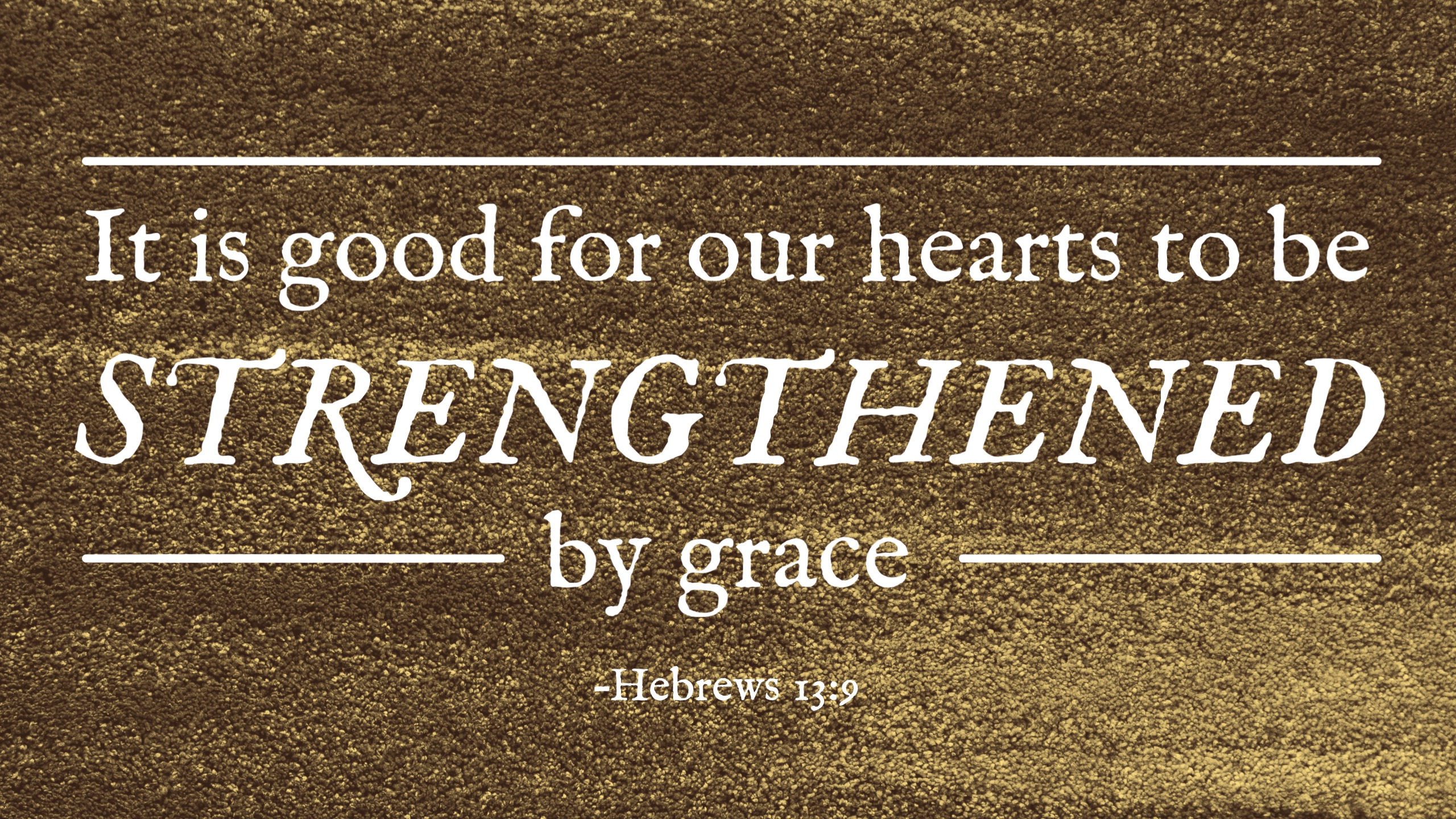
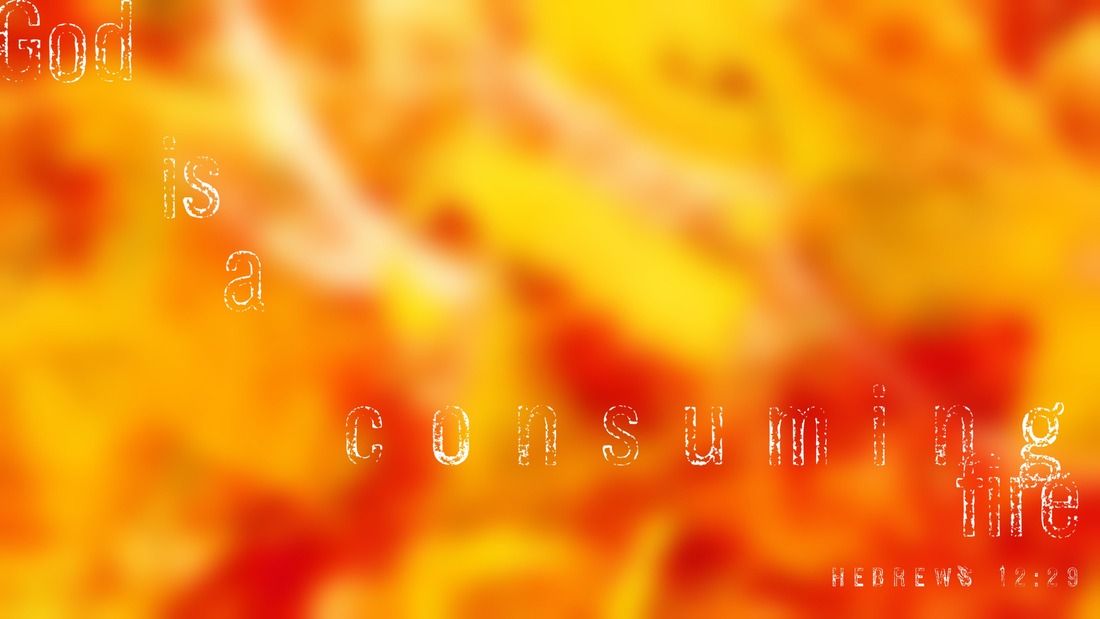
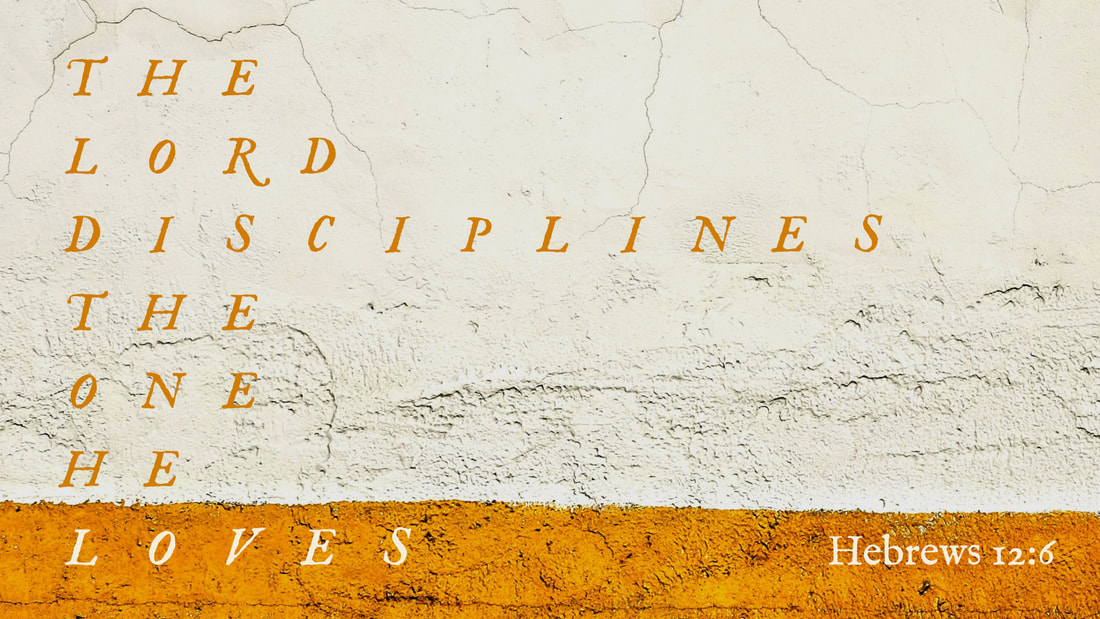
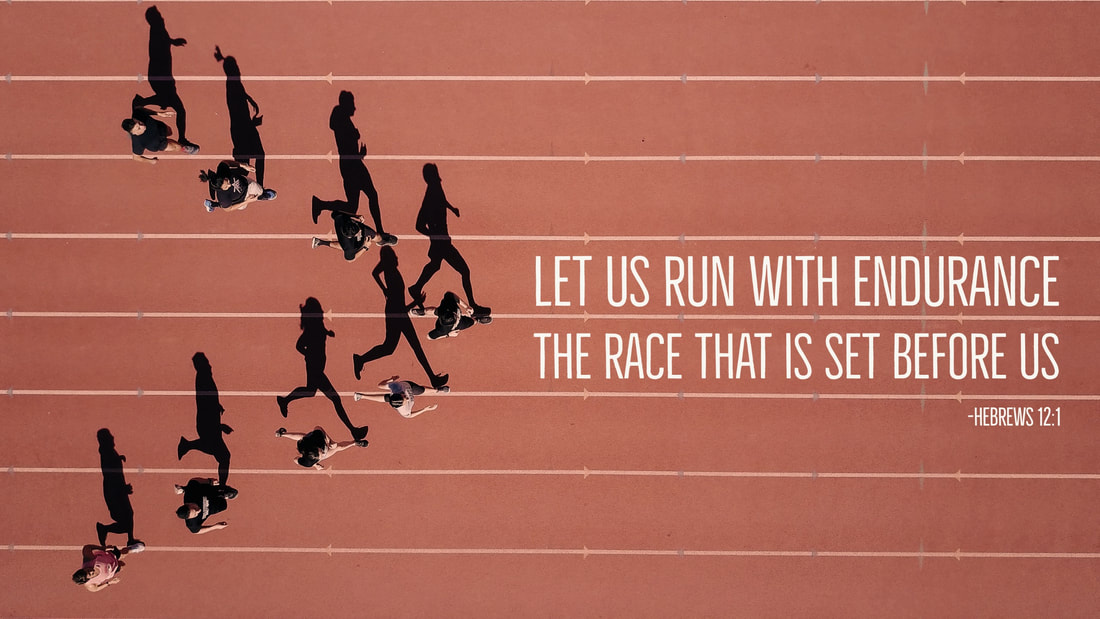
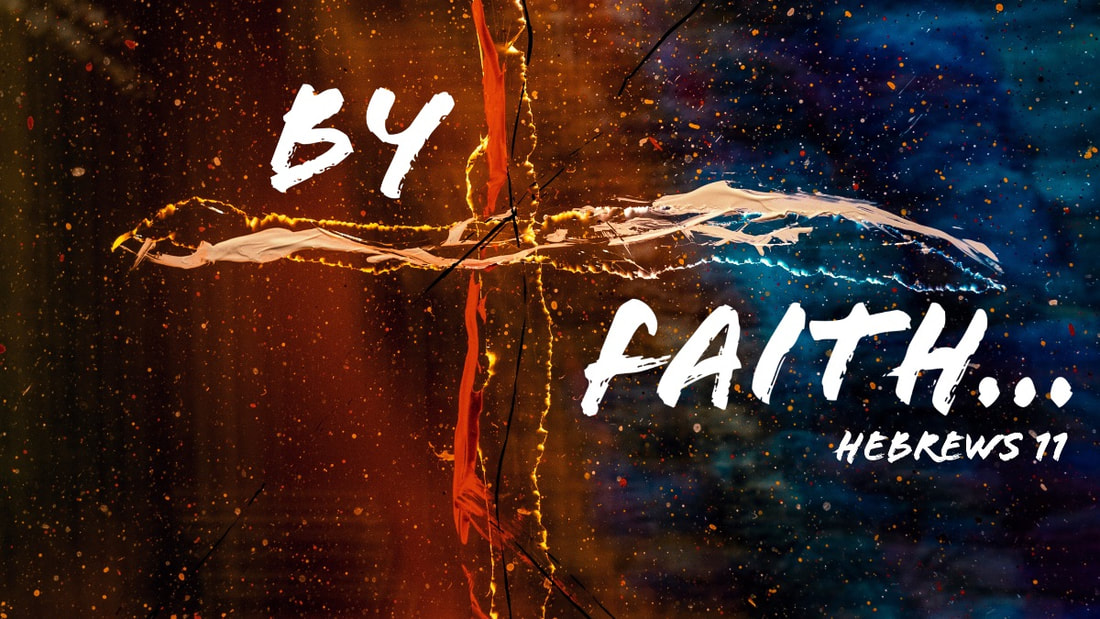

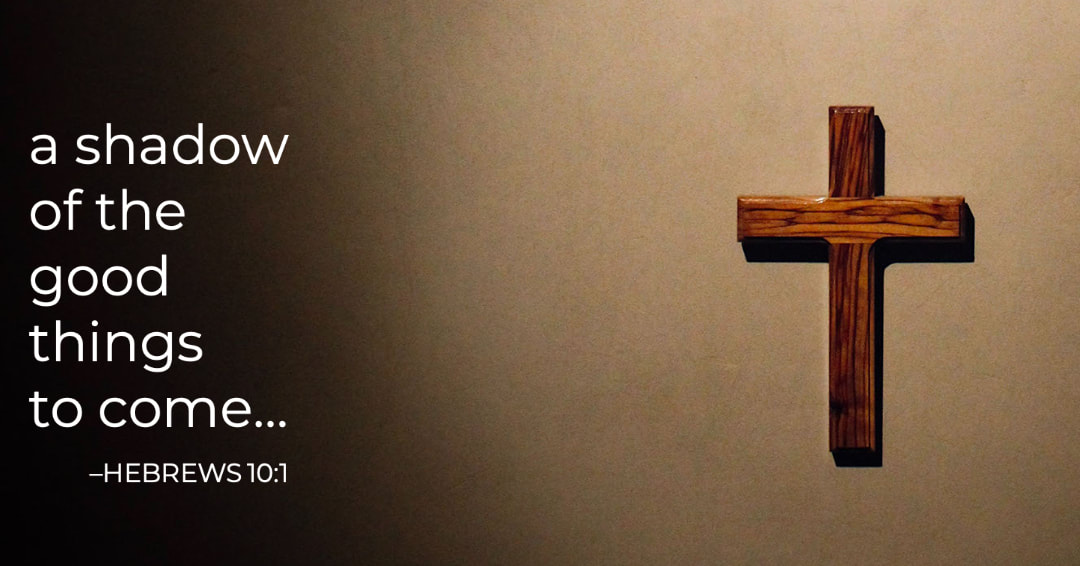

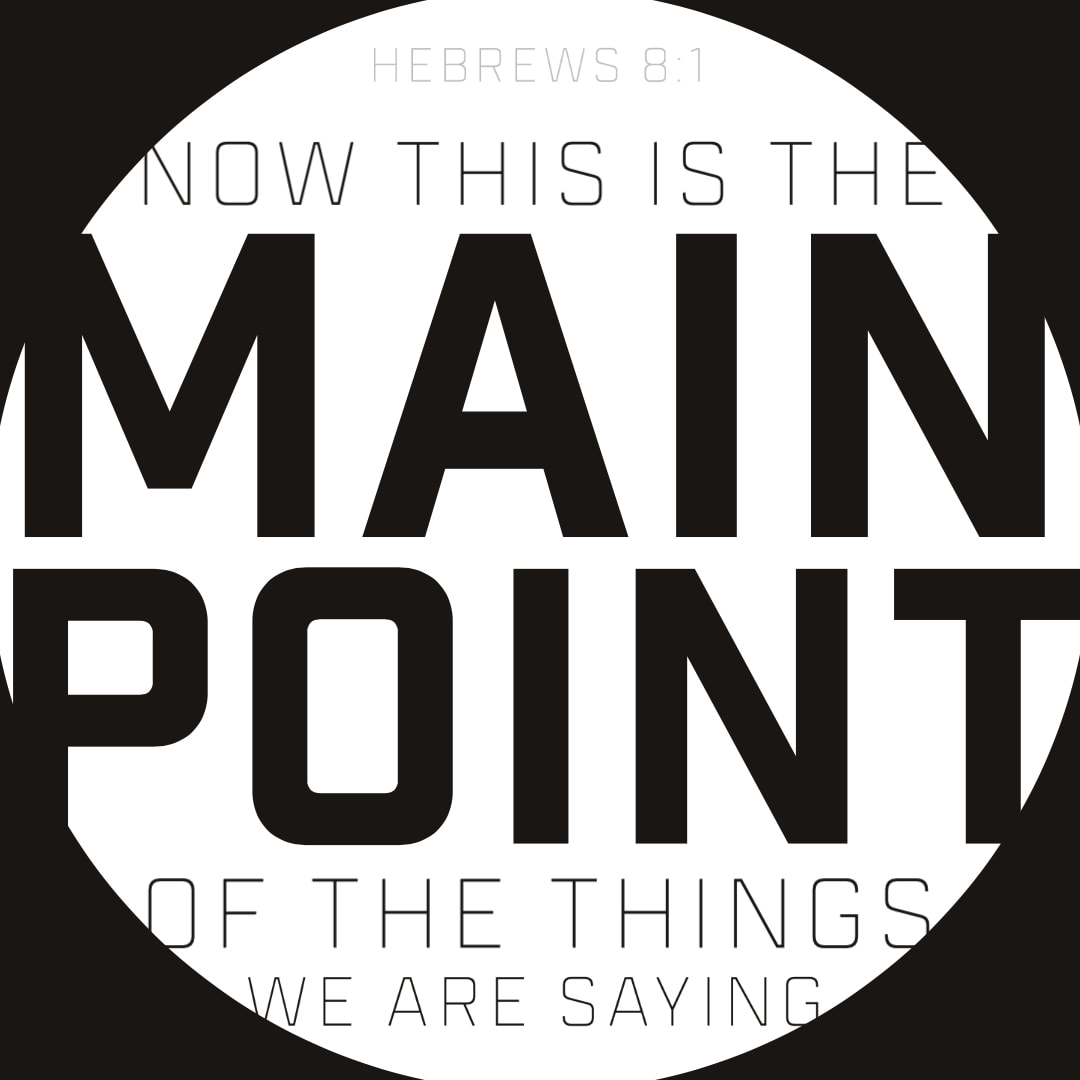
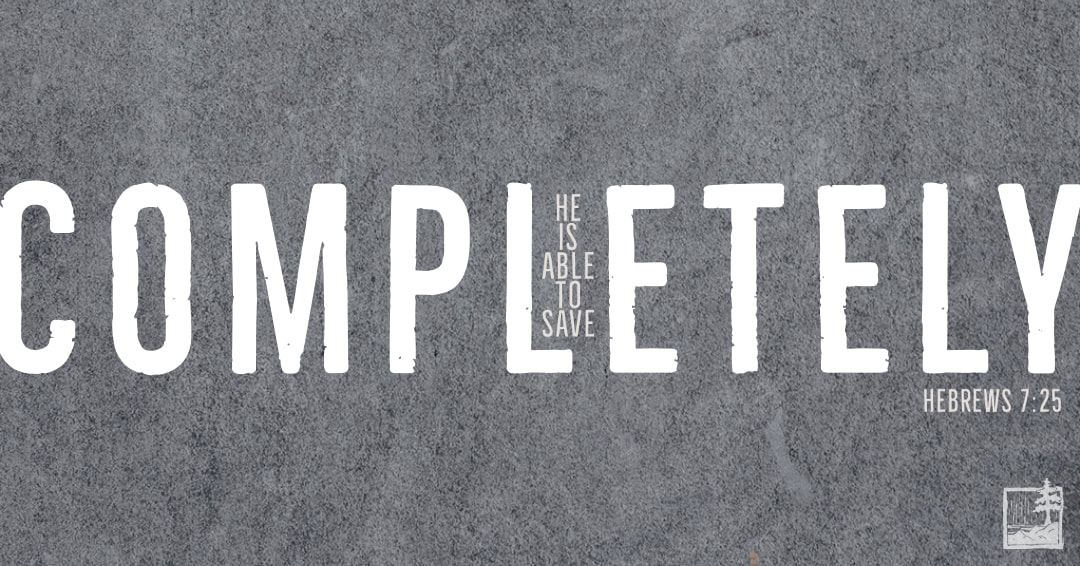
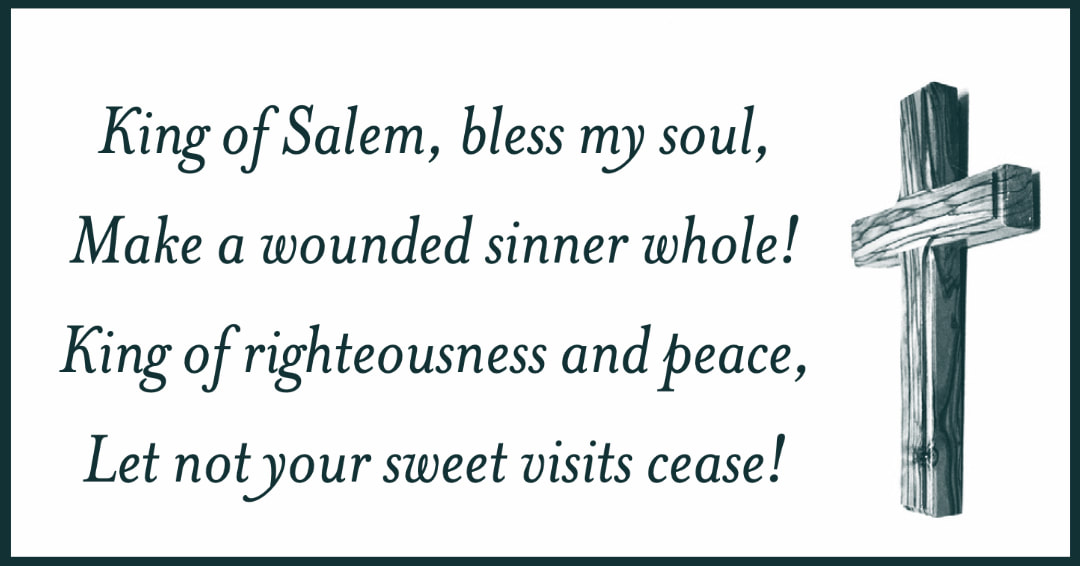
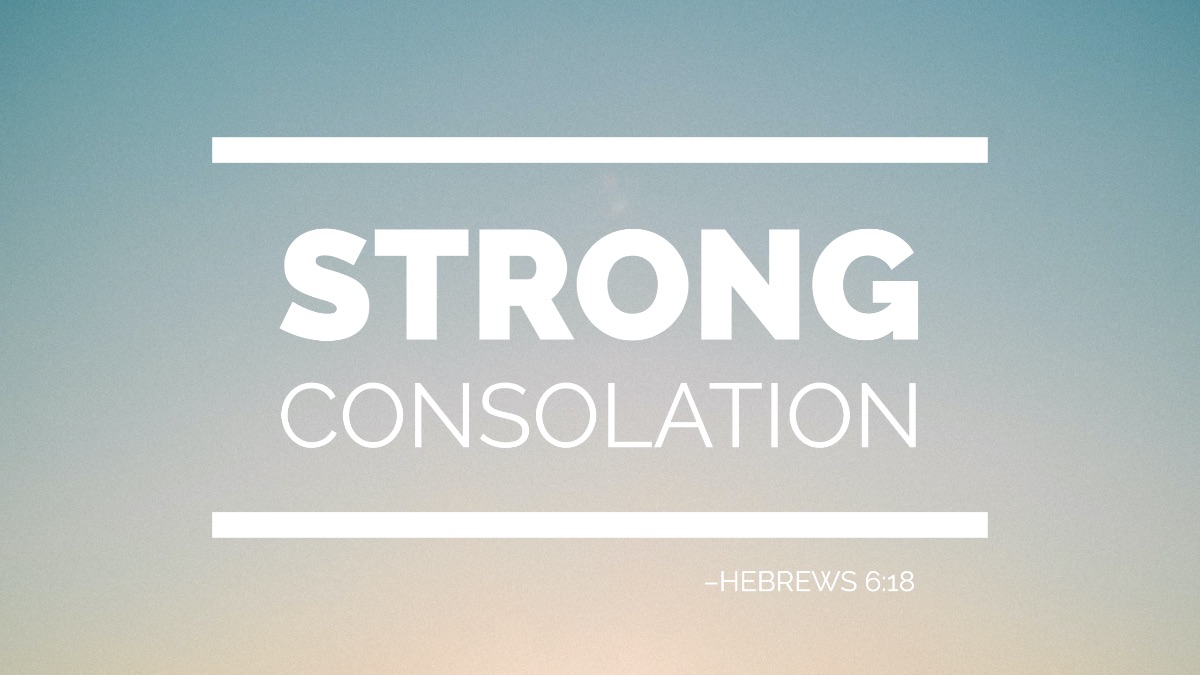

 RSS Feed
RSS Feed